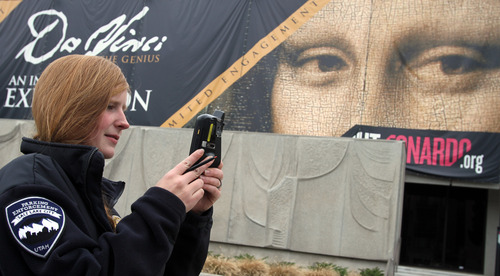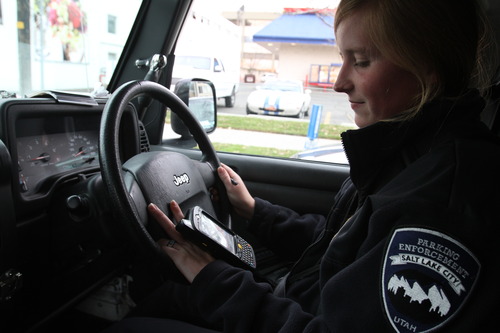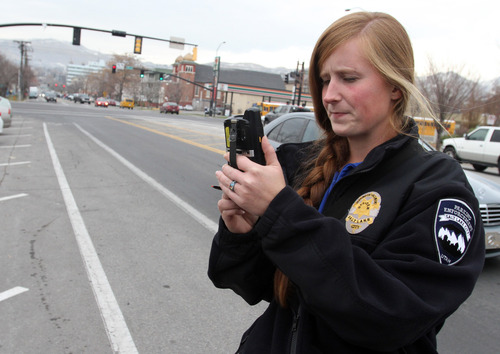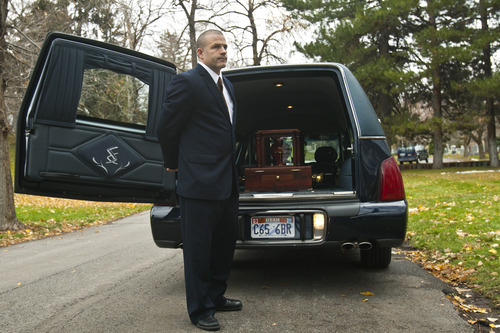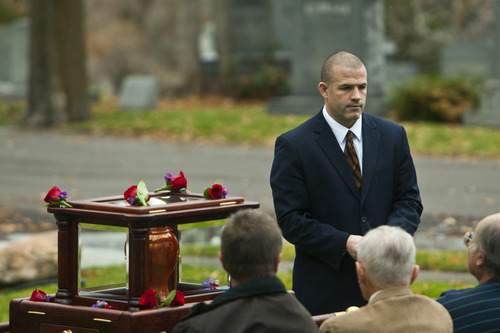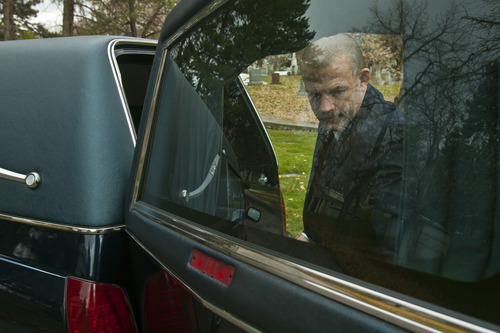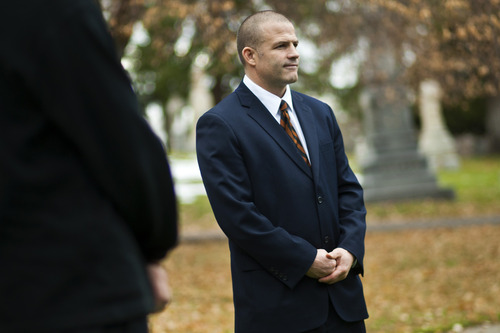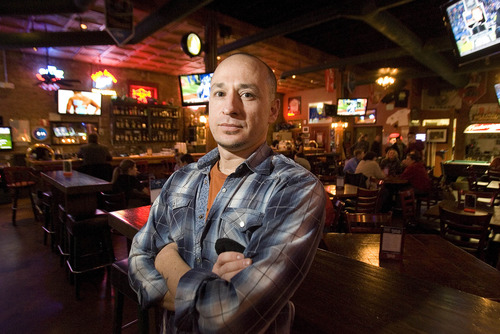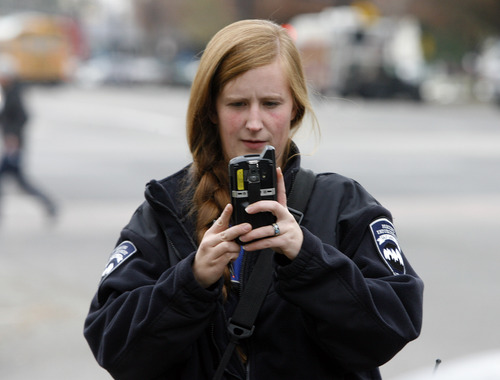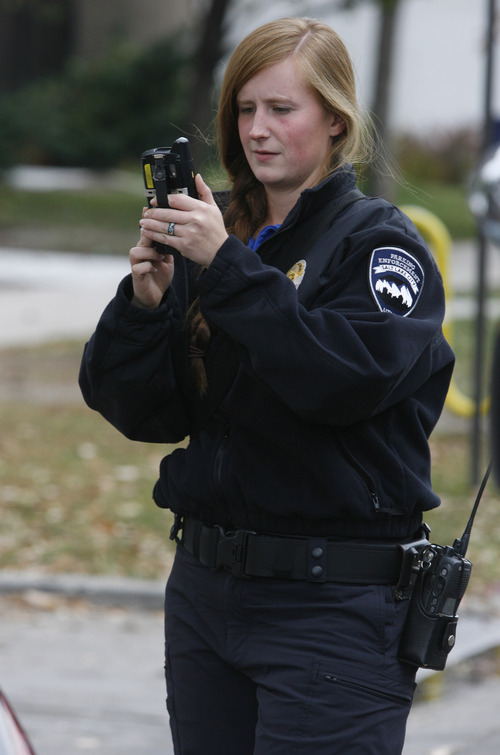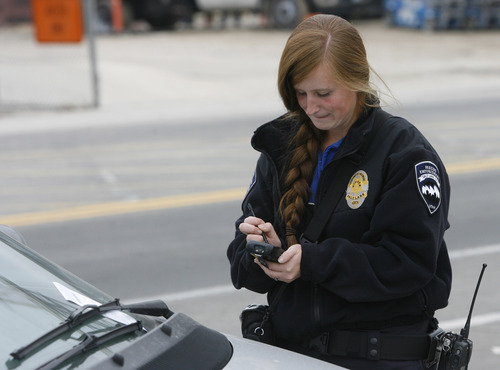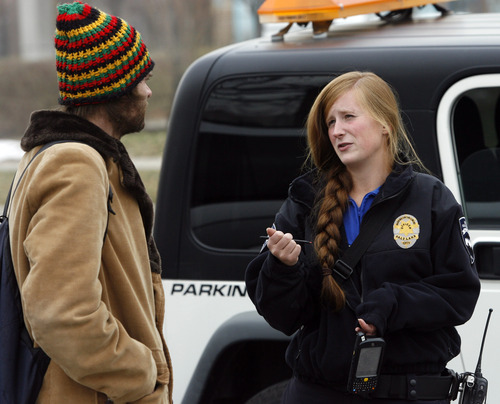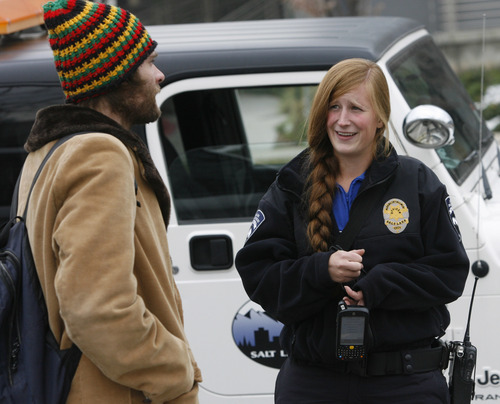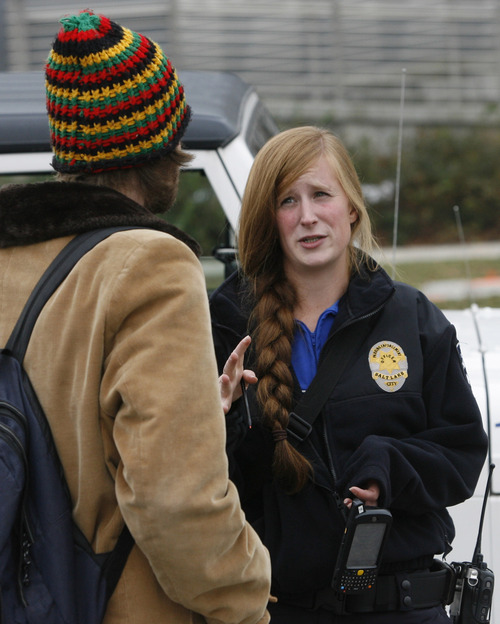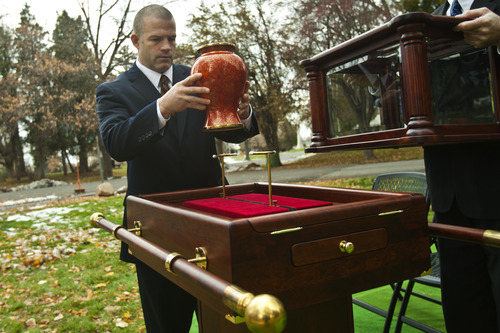This is an archived article that was published on sltrib.com in 2012, and information in the article may be outdated. It is provided only for personal research purposes and may not be reprinted.
Thanksgiving begins the holiday season. But it certainly isn't the only time of year when we show gratitude and pass around good cheer. Yet for some dedicated souls who work at difficult but necessary jobs, thanks can be a rare commodity. Still, they persist and enjoy their roles, even as others ignore, pity or revile them. Here are the stories of three such Utahns who have at least one trait in common: thankless jobs.
—
Parking officer •When folks quiz Jennifer Farrell on what she does for a living, the 25-year-old Weber State grad says she's got the most-hated job in Salt Lake City.
And they guess it every time: She's a parking enforcement officer — called a "meter maid" in the old days, even by The Beatles.
"Occasionally, there are people who aren't happy about getting a ticket," explains the easygoing Farrell. "I got called the Antichrist by a guy who works at a bar on Main Street."
If it's not dumping snow, Farrell patrols on a bicycle with a hand-held computer that tells her which meters have expired.
"You never know what you're going to get when you meet someone who just got a ticket," she says. "You'd be surprised who is really sweet and who is really mean."
Duty bound and professional, no matter how withering the insults get, she doesn't react. On a good day, she can let it all go "like water off a duck's back," she says.
"But I don't like being called the B-word and I do get called that here and there," she laments. "They say it as they drive away because they don't want to swear at a redheaded girl with pink cheeks."
To help keep her life in balance, she practices "fire spinning," like the Polynesian fire dancers who spin flaming batons. She's also into drumming with an udu, a ceramic Nigerian instrument.
Pedaling around downtown for the past 10 months, Farrell has gotten to recognize "regulars" — business owners, employees, vendors and transients. They exchange salutations; it's one of the perks of being on a bicycle. Of course, those friendly faces aren't getting citations.
Even motorists who aren't being slapped with a parking ticket like to pass out advice.
"I hear this a lot: give 'em a break," she says. "We give people breaks all the time."
If a motorist whose meter has expired approaches Farrell before she's printed the ticket, "I'll let them go," she says.
And then maybe, just maybe, that person will say something nice.
—
Doorman •Jory Gallegos knows what it's like to be lambasted with language seasoned by libation.
As a doorman — what some call a bouncer — at the Green Pig Pub downtown, the 37-year-old Carbon County native has seen up close what it means when someone says, "He can't hold his liquor."
With an athletic build, the former Marine carries himself with confidence. And that likely helps when dealing with folks who have had a little too much fun and decide to take on the world — or maybe just the barmaid.
"You've just got to be nice. That's the way it is," he explains of his technique for dealing with agitated inebriates. "Nobody wants to have muscles flexed on them. Most of the time it works out. But it is a bar, and things do happen."
Gallegos is an electrical-systems designer by trade, but he likes to work nights at the Green Pig because it helps him balance out his week working in a cubicle.
"If I didn't like this, I wouldn't be doing it," he says. "You get to meet people from all over the world. A lot of different characters come in here. You can learn a lot from them."
As a young Marine, Gallegos "partied with the best of them." But these days, he doesn't drink. That provides an interesting view of those who do, sometimes to embarrassing excess.
"Some girl called me every name in the book," he recalls of a margarita-fueled misunderstanding on a hot summer night. "It wasn't pretty, but you've got to deal with it."
The best way to handle such an encounter is to take a deep breath, Gallegos explains.
"You just say, 'Hey, how are you doing?' And you offer them some water," he says. "We have them sit down and we call a cab. You want everyone else to have a good time."
As thankless as the job might appear, there are times when customers show appreciation for his abilities after he's taken a drunken tongue-lashing. "I've had customers come up to me and say, 'Hey, man, you didn't deserve that.' "
For the most part, Gallegos says, the clientele at the Green Pig is a good crowd. "It's fun when it's smooth. But it's bad when it's bad."
—
Funeral director •Spencer Larkin is no stranger to grief. He's the fifth generation of the family that has owned and operated Salt Lake City's Larkin Mortuary.
"I never planned on going into the family business," he says. "Some people rate morticians with used-car salesmen."
But, working his way through college at the family business, he found the rewards that come by helping people struggle through the death of a loved one. "To just be able to make their lives a little better, that's why we're here."
The 37-year-old University of Utah grad explains that funeral directors help people make dozens of decisions at a time when the world is a blur of emotion. While the mortuary can appear calm and solemn, behind the scenes it can be chaotic — particularly if there are a number of funerals on a given day.
"Whether it's a father who has died of cancer or a 6-year-old who has died in a fire, or a homicide of a family member, to be there and keep your composure is difficult."
Because the job can be burdensome, "it's important to recharge," he says. "You have to take care of yourself."
Larkin finds solace in mixed martial arts and what he calls "no holds barred" fighting. It allows him to escape from the reality of death and grief surrounding his day job.
"Children always affect me the most," he says, recalling the little girl who perished in the fire. "It was devastating to the whole family. The chance to serve that family was so difficult."
A mortician's job isn't completely thankless. On the one-year anniversary of the girl's death, her family held a celebration to honor her short life and invited Larkin and his wife. It was a "special day," he recalls.
"You are with somebody at such a vulnerable time," he says. "The bonds are made immediately."
Larkin sees one of his most important tasks as helping grieving people begin to mourn.
"If we don't go through the mourning process," he says, "it continues to affect us."
And people often are reluctant to start down that path.
"They have grief, but they don't want to mourn," he says. "If we can help them start that journey, they can heal. We can become better [as a culture] by letting people know it's OK to cry."


